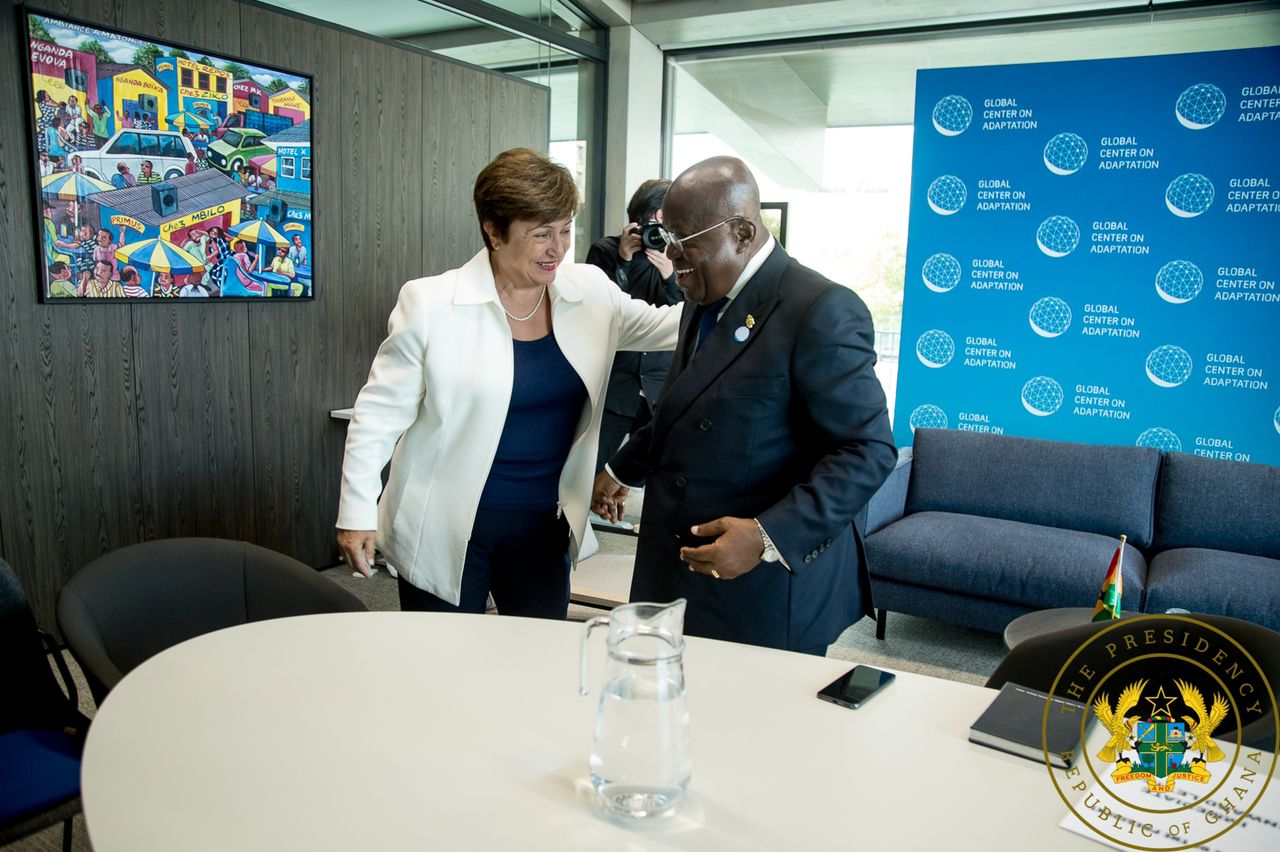Ghana and the International Monetary Fund (IMF) have reached staff-level agreement on economic policies and reforms to be supported by a new three-year arrangement under the Extended Credit Facility (ECF) of about $3 billion.
Financing assurances by Ghana’s partners and creditors
The staff-level agreement is subject to IMF Management and Executive Board approval and receipt of the necessary financing assurances by Ghana’s partners and creditors.
Restoring stability, protecting the vulnerable
Ghanas’ strong reform programme aims at restoring macroeconomic stability and debt sustainability while protecting the vulnerable, preserving financial stability, and laying the foundation for strong and inclusive recovery.
Comprehensive debt operation
To support the objective of restoring public debt sustainability, government has launched a comprehensive debt operation, a statement issued by the IMF said.
Frontloaded fiscal consolidation
In addition to a frontloaded fiscal consolidation and measures to reduce inflation and rebuild external buffers, the IMF said the programme envisages wide-ranging reforms to address structural weaknesses and enhance resilience to shocks.
Factors that adversely affected Ghana’s macroeconomy
The COVID-19 pandemic, rising global food prices, rising crude oil and energy prices; and the Russia-Ukraine war adversely affected Ghana’s macroeconomy, with spillovers to the financial sector.
Combination of adverse external shocks
The combination of adverse external shocks had exposed Ghana to a surge in inflation, a large exchange rate depreciation and stress on the financing of the budget, which taken together have put public debt on an unsustainable path.
Debt servicing absorbing 70% of tax revenues
Debt servicing is now absorbing more than half of total government revenues and almost 70% of tax revenues, while total public debt stock, including that of State-Owned Enterprises and all, exceeds 100% of GDP.
Ghana’s public debt is unsustainable
Debt Sustainability Analysis (DSA) had demonstrated that Ghana’s public debt was unsustainable, and that the government may not be able to fully service its debt down the road if no action is taken.
Significant financing gap over the coming years
The DSA had demonstrated that Ghana is faced with a significant financing gap over the coming years revealing that public debt is unsustainable.
Wide-ranging economic reforms agreed
According to the IMF, Ghanaian authorities have committed to a wide-ranging economic reform programme, which builds on the government’s Post-COVID-19 Programme for Economic Growth (PC-PEG) and tackles the deep challenges facing the country.
Protecting the vulnerable while sustainability of public finances
The Fund pointed out that key reforms aim to ensure the sustainability of public finances while protecting the vulnerable.
Increase domestic resource mobilization and streamline expenditure
It noted that the fiscal strategy relies on frontloaded measures to increase domestic resource mobilization and streamline expenditure.
In addition, the IMF said government has committed to strengthening social safety nets, including reinforcing the existing targeted cash-transfer programme for vulnerable households and improving the coverage and efficiency of social spending.
Structural reforms to be introduced
The Fund announced that structural reforms will be introduced to underpin the fiscal strategy and ensure a durable consolidation and it includes developing a medium-term plan to generate additional revenue and advancing reforms to bolster tax compliance to help create space for growth-enhancing measures and social spending.
The Fund explained that efforts will also be made to strengthen public expenditure commitment controls, improve fiscal transparency including the reporting and monitoring of arrears, improve the management of public enterprises, and tackle structural challenges in the energy and cocoa sectors.
It noted that government also committed to further bolstering governance and accountability.
“To support the objective of restoring public debt sustainability, the authorities have announced a comprehensive debt restructuring.
“Sufficient assurances and progress on this front will be needed before the proposed Fund-supported program can be presented to the IMF Executive Board for approval.
“Reducing inflation, enhancing resilience to external shocks, and improving market confidence are also important program priorities. Accordingly, the Bank of Ghana will continue to strengthen its monetary policy framework and promote exchange rate flexibility to rebuild external buffers.
“As part of the authorities’ debt strategy, a domestic debt exchange has been launched. The authorities are committed to taking the necessary mitigation measures to ensure financial sector stability is preserved.
“IMF staff held meetings with Vice President Bawumia, Finance Minister Ofori-Atta, and Bank of Ghana Governor Addison, and their teams, as well as representatives from various government agencies.
“The IMF team has also continued to engage with other stakeholders. Staff would like to express their gratitude to the Ghanaian authorities, Parliament’s Finance Committee and all the private sector, trade union, and civil society representatives for their open and constructive engagement over the past few months,” the IMF said.
- Friday, April 4, 2025 Newspaper Headlines - 4 April 2025
- Blewett: MTN CEO, a pilot, author, chartered accountant, marathon runner and many more - 3 April 2025
- MTN Ghana launches Y’ello Ladies Network - 3 April 2025

